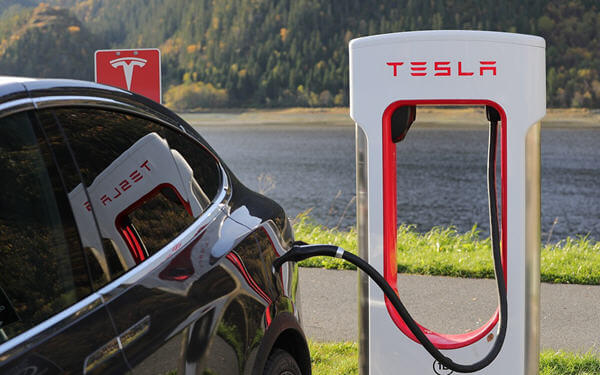Tesla’s electric motor shift to spur demand for rare earth neodymium

Tesla’s shift to a magnetic motor using neodymium in its Model 3 Long Range car adds to pressure on already strained supplies of a rare earth metal that had for years been shunned because of an export ban by top producer China.
Efforts by governments around the world to cut noxious emissions produced by fossil fuel-powered cars is driving demand for electric vehicles and the metals used to make them, such as lithium and cobalt which are key ingredients for batteries.
Now the spotlight is on neodymium. Several auto makers already use permanent magnet motors that rely on the metal because they are generally lighter, stronger and more efficient than induction motors that are based on copper coils.
But it is the switch to neodymium by Tesla, an auto maker that has staked its future solely on the electric vehicle, that is showing the way the industry is moving and the direction of demand for the rare earth metal.
Research group imarc estimates the market for the neodymium-iron-boron magnet used in the motors is now worth more than $11.3 billion, with demand for the magnets rising at a compound annual growth rate of 8.5 percent between 2010 and 2017.
“Some electric car motors use the permanent magnet technology, probably the most famous is the Tesla Model 3 Long Range. All the other Tesla models — Model X and Model 3 standard — use induction motors,” said David Merriman, a senior analyst at metals consultancy Roskill.
Global demand of 31,700 tonnes for neodymium last year already outstripped supply by 3,300 tonnes, he said. Demand was expected to climb to 34,200 tonnes this year and 38,800 tonnes in 2018, leaving larger deficits.
“Tesla’s decision to switch to permanent magnets has completely changed the dynamics of the market,” said a source at a fund manager that specializes in metals.
The price of neodymium is now about $70 a kg, well below the $500 hit after China held back shipments to Japan in 2010 during a row over disputed islands but it is still 40 percent higher than at the start of 2017.
China, which resumed neodymium exports in 2015, imposed strict export quotas across a range of rare earth metal in 2010, saying it wanted to curtail pollution and preserve resources.
“People seem to have forgotten China’s export ban. It could happen again. China is really the main producer, no one else has invested as much in rare earths,” a rare earth trader said.
Source: Reuters
Electric Cars
Industrial Metals
Mining








